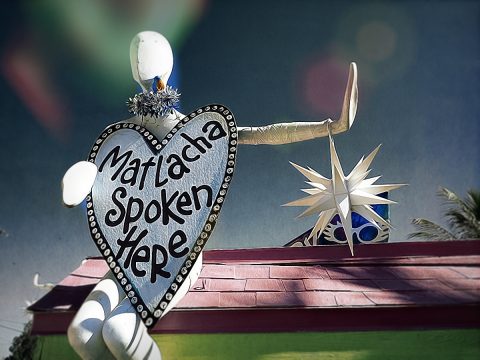Let’s just get the obvious question out of the way first. It’s hard to write about planes and cities and crashing without conjuring 9/11. Did this give you any anxiety about writing the piece?
You know, I hadn’t really considered it. I suppose I should have. I certainly had no anxiety while writing, probably due to the drinking. I generally try to limit my anxiety to editing. Kristine Ong Muslim nailed this, though, in her assessment that the piece is all about distance and trauma, so there’s got to be a correlation there. The narrator sees this thing happen and he can’t relate, or he tries to but is unable. He’s unable to reconcile his internal, personal trauma with this external trauma he’s party to.
I noticed that your use of paragraph breaks is particularly powerful and seems to heighten the tension or reveal a truth in the way that line breaks in poetry function. Do you often write or read poetry? How much do you deliberate over the paragraph breaks?
I don’t read as much poetry as I probably should, so I think it goes back to being musically inclined. There has to be a rhythm and a cadence to the prose. I don’t know if many people think of stories as having a “hook” or a “chorus” like you might in a song, but they’re there. I can always remember a great line in a story I’ve read like I can a great hook in a song.
As far as the line breaks go, I suppose I try to find where they fit naturally, kind of letting the story do what it wants. I might change things here or there, elongate a sentence or begin with a conjunction, but things generally fall into place on their own. I’ve heard writing equated with lion taming—the prose does all the work, and the writer is often just there to make sure things don’t get too out of hand.
I once read of a flash fiction exercise where you start with three things—a sound, and object, and a photograph—and make a story out of it. How do you get started on a flash fiction piece? Do you have prompts or exercises that you rely on? Was there something that triggered this piece in particular?
Other than some light stretching in the morning, I don’t do many exercises. John Gardner has some great prompts in the back of some of his nonfiction works. I’ve tried to get started on some but will eventually find myself drifting away, looking out the window or something. I haven’t written much flash fiction, and Surge might be one of the few decent pieces I’ve produced. It just kind of fell out one day while I was watching a plane fly by. I was reminded of this moment some friends and I were drinking beer and the power did indeed go out. We were younger and exceedingly irrational and began considering how it could be the end of the world. Turns out, a plane had crashed right outside of a convenience store down the road. Half the town went and rubbernecked, kind of morbid now that I think about it. But it was so surreal. This little Cessna, I say “little” but they are very large, had its nose crushed into the earth, its body illuminated by the lights of the Citgo.
To relate this to your previous question, perhaps that’s why I didn’t immediately cogitate on September 11. I was a freshman in high school and we watched it all on TV. It’s horrifying even to consider now, but it was all in a broadcast. I think this other memory was much stronger. I guess it comes back to that idea of distance and trauma.
Last question—what’s your favorite story line right now? It can be from anywhere, a book you are reading, a TV show, a movie. Who’s writing the story you like right now?
I got really into Bloodline when it came out last year, and the second season just dropped but I haven’t had a moment to watch it. It’s equal parts Shakespeare and total trash. And I’m a huge Sam Shepard fan, so if he’s a part of something, I’m on board. I’m also from North Florida, which is pretty much Georgia, but I still gravitate towards anything that gets the underlying weirdness of all those podunk fishing villages from Tallahassee to the southernmost point. The whole mixed-up state is an untapped market for all mediums of fiction. It blows my mind that more people don’t write about it.



 The core workshop of SmokeLong Fitness is all in writing, so you can take part from anywhere at anytime. We are excited about creating a supportive, consistent and structured environment for flash writers to work on their craft in a community. We are thrilled and proud to say that our workshop participants have won, placed, or been listed in every major flash competition. Community works.
The core workshop of SmokeLong Fitness is all in writing, so you can take part from anywhere at anytime. We are excited about creating a supportive, consistent and structured environment for flash writers to work on their craft in a community. We are thrilled and proud to say that our workshop participants have won, placed, or been listed in every major flash competition. Community works.